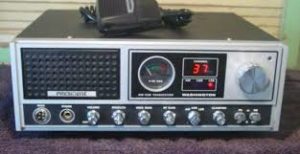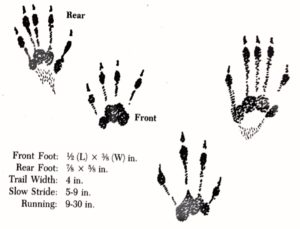You’re in good a discussion and – Boom!
Out of nowhere, it becomes heated. What now? If we could just agree, we could just move on. So we inform them. But, is there a cost to getting our point across rather than understanding each other?
____________________
Dad was “Hill-Billy”, Mom was “Skeeter”,
I was “Jet-Speed”, and my sister was “Little-Boo”,
Not our real names, just our handles, as Citizen Band radios popped on to the market in the mid 70’s.
My dad and his brother Wayne [Handle: Snoopy] both drove 18-wheelers. As a kid, I remember them chatting back & forth on their CBs, and always out one side of their mouth. It was a “modern” social network where the radio was the price of admission, and everyone was your friend (AKA: Good Buddies).
Among these good buddies, there was an etiquette.
If no one was talking the channel was open. You could just press the button and talk. You would speak your message. Your good buddy listened and would respond accordingly. A prime example of the three elements of 2-way communication:
Talking on a CB was practical, but not perfect!
When you press the talk button, the CB blocks anyone else’s transmission from your radio’s speaker. When you talk, you can not hear others. And when you are listening to someone and a 3rd party presses and talking, you got “walked over.” You, then ask your buddy to repeat by saying, “10-9 someone walked on you. Please repeat.”
This secret language and procedure was fascinating to a five-year-old! As I picked up on these rules and dad finished his CB conversation, I would ask for clarity on the terms he used.
Some common terms were:
10-4 – Ok, message received/affirmative.
10-9 – Repeat Message.
Got your ears on? – are you on air/listening
Negative copy – did not hear
You copy? – do you understand?
Over – your turn to transmit.
Ratchet-Jaw – non-stop talker
Walking on you – someone talking over you
Culture sure has changed in the past few decades:
There seem to be more people with their talk buttons pushed than those with their ears on.
With our finger on the talk button are we listening to each other or simply talking into the air?
Dad would say,
“Beware of Alligators, they have big mouths, little ears.”
– Bill Kerwood Sr.
You see this in political talk shows (all sides),
I think it starts on children’s television shows. Watch a few minutes of an animated serial cartoon. Many kids watch several each day. Notice how the scripts are written. You will see selfish chatter with minimal acknowledgment. Rarely, if ever, will you see a cartoon character actively listening. This psyche and culture of today’s youth are formed & reinforced, moment-by-moment. Much like political talking head shows.
If communication consists of 3 components, transmitter, receiver, and message…
Effective communication requires a 4th step.
(And it’s not arguing for agreement).
There is a much higher outcome to aim for:
Let’s aim for understanding.
“We don’t have to agree with people,
But to understand them is to love them.”
– Bill Kerwood
Let’s not argue to win,
Let’s listen to understand.
Let’s care for each other.
Let’s reinforce a culture of listening and understanding.
When there is too much noise in the air, it’s time for a sound check.
Check 1-2-3.
Check that you are:
- Hearing
- Processing (listening).
- Understanding
If our thumbs are on the talk button,
our ears are not on.
10-4, Good buddy?
You copy?
Over.
_____________________
After processing these thoughts, I dove in to see what one of my favorite authors wrote on understanding. The following is a small selection from King Solomon, a sage king who lived over 2,600 years ago.
He makes some good points, many that I need to apply in my life…
A fool takes no pleasure in understanding, but only in expressing his opinion. (Proverbs 18:2)
Whoever is slow to anger has great understanding, but he who has a hasty temper exalts folly. (Proverbs 14:29 )
Making your ear attentive to wisdom and inclining your heart to understanding. (Proverbs 2:2)
Whoever restrains his words has knowledge, and he who has a cool spirit is a man of understanding. (Proverbs 17:27)
Blessed is the one who finds wisdom, and the one who gets understanding. (Proverbs 3:13)
The purpose in a man’s heart is like deep water, but a man of understanding will draw it out. (Proverbs 20:5)











































